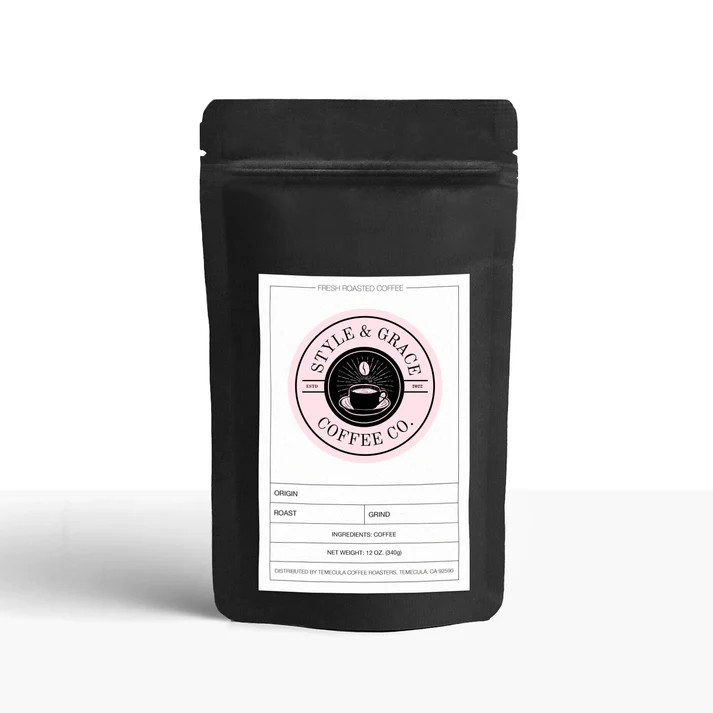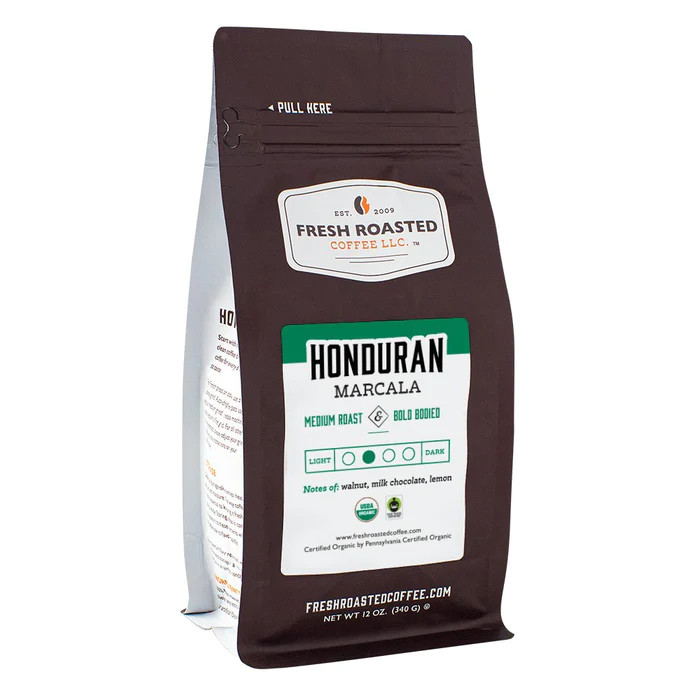A special Honduras coffee finding
Well, actually the best farms grow their coffee under the shade of higher (other sorts of) trees, as this gives a richer taste to the specialty coffee, compared with those growing in the direct sun. Anyway, more and more coffee-thirsty people are becoming aware, and appreciative, of extra good coffee. We can also find good specialty coffee here in Honduras.
As you may already know, there are plenty of good Honduran coffee. The altitude in the mountains (1600- 2200 m), allows for slower growth and gives the fruit time to produce a less acidic and better taste. Further, the crisp night temperature just under 20C (66F), combined with plenty of sun in the daytime, gives perfect conditions for the coffee plants to thrive.
Look out for the list of some of the best specialty coffee from Honduras at the end of the article! You can fast-forward with the menu if you prefer. Some of the links may be affiliate links. If you follow them and purchase a product I might get a small commission.
In this blog post we will look at the following:
What makes Honduras coffee so great?
You may not find coffee at the top of Celaque, (I have been to the top!!) but the growing conditions high in the mountains combined with the climate, make excellent growing conditions for the Honduran coffee.
In addition to coffee, Honduras is known to produce a lot of:
- Coconuts
- Bananas and plantains
- Coffee beans, and some of which is so good that it’s in the specialty coffee category
- Sugarcanes
- Corn
- Other fruits such as oranges, mangos, and lychee
A “finca” (as it is called in Honduras), or farm, often have a combination of coffee plants and other trees. The bigger fruit trees, like oranges or mangos, gives shade to the growing coffee beans and may, or may not, give an impact to the final product.
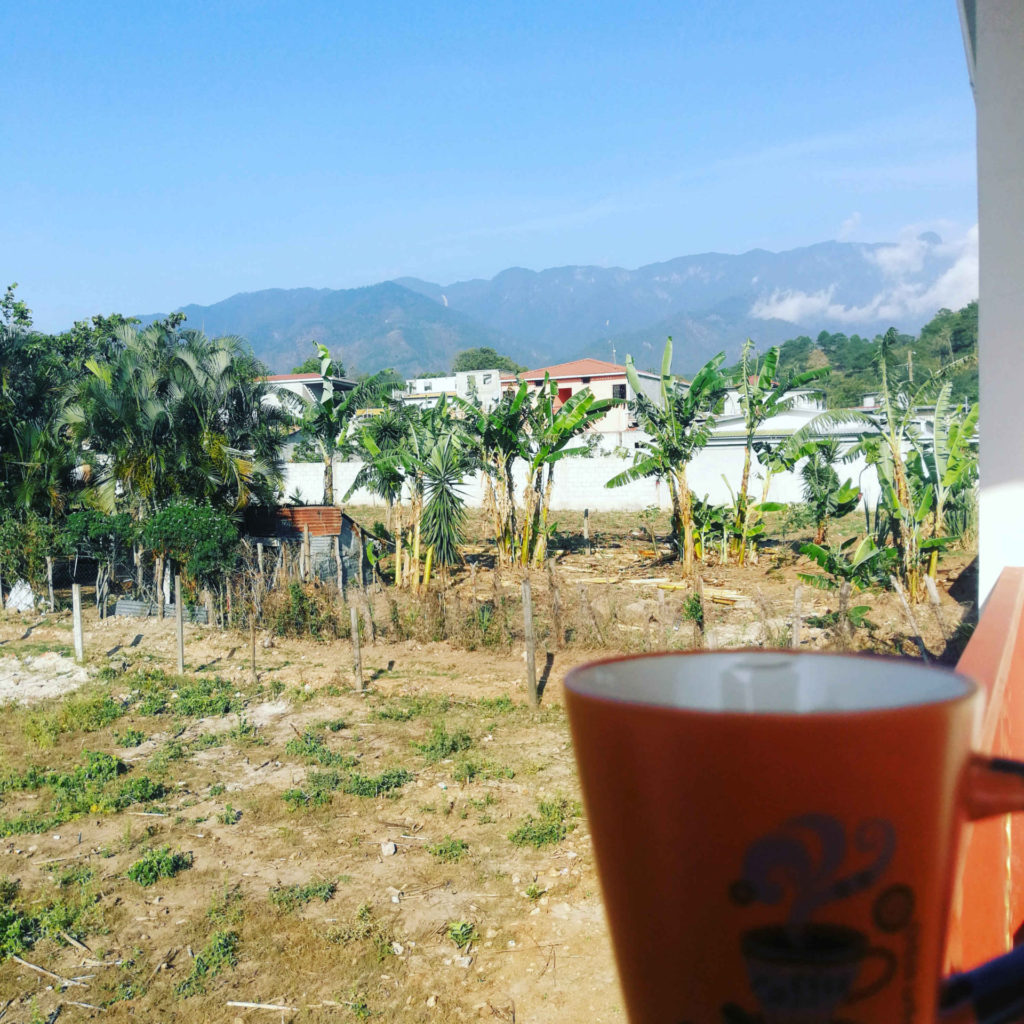
What is specialty coffee?
I was pleasantly surprised, and my interest peeked, by what I found out about specialty coffee. Interestingly, industry standard for specialty coffee isn’t measured by a machine connected to a computer. It is decided manually by people who actually taste the coffee! Of course, they have to follow certain standards. In our day (the year 2024) so much is measured and tested in factories and labs all over the world (ref. Covid-19)… so this was a very pleasant surprise.
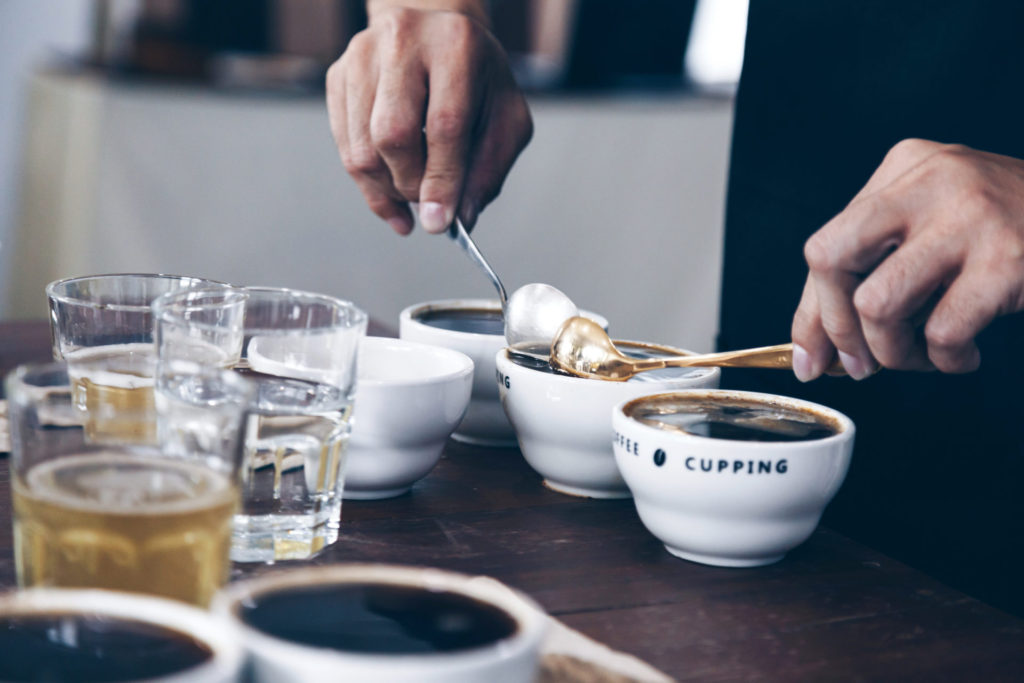
Testing committees are exclusive; so you must meet very strict or detailed criteria in order to qualify as a member (Speaking of dream job!). They do have to know the standards well and do their paperwork. You can read more about this testing on other sites such as Spirit Animal, but I will briefly enlighten you.
One of the things I found interesting is that even the cup is examined before they drink the coffee sample. This is done to ensure no one has tampered with it to add a certain smell or taste to get a better score. And, of course, they examine the raw green beans before they are roasted to see the quality firsthand.
100 points max for specialty coffee
So, does anyone get 100 points? I have not found one yet. However, I am enjoying a super-rich 90.5 point Honduras coffee at the moment from Spirit Animal Coffee. It was sent to me via an expedition company, and after a “long” week (I was so eager to receive it, that it felt long!), it arrived. I was so happy and excited that I opened a bag right away to smell it! Then I brewed myself a nice cup or two. I’ll soon need to order more…!
There are several distributors here claiming to have specialty coffee, well so the bag says, but the product is far from special. All specialty coffees have the points stamped on them. So, either they are missing out on some of the sales they could have had, or it’s not the real thing.
Some requirements that qualify coffee for the cupping process (to decide if it is specialty coffee):
- Only Arabica beans can be used! You can read more about the different Arabica types of beans here.
- Body
- Sweetness
- Fragrance and Aroma
- Aftertaste
- Overall quality
The committee called Q-graders, which consists of 5 members per one testing, will inspect the raw green beans first. After inspection, the beans have to be roasted and ground within twenty-four (24) hours before the cupping really begins. With their forms in one hand and the cup in the other, they individually give scores based on certain criteria. Imagine if all give or add 2 points under one area like say, sweetness, that can affect 10 points up or down.
Do you wonder how coffee spread to the world? Well, look no further than here.
Enough about the testing process… since most of us are just happy to get the chance to taste the final product. There is a side effect to having specialty coffee in the house that you should be aware of though.
Having a specialty coffee in the house may have the side effect of craving/drinking more coffee (because it’s sooo good!), and showing off by offering a cup to your friends who are unaware of this coffee standard! Of course, they might shake their heads, until they taste it for themselves.
Specialty Coffee Association (SCA)
If you are into specialty coffee, the coffee industry or just coffee life in general, you might like to check out “Specialty Coffee Association” (SCA). They have a very cool website where you can learn much more about this precious kind of coffee.
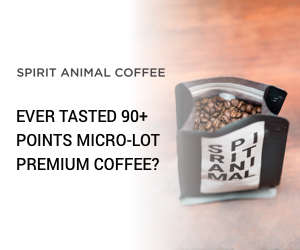
Imagine showing this to your friends!
Actually, you might want to enjoy it for yourself, as it’s pretty awesome.
Honduras coffee and specialty coffee
In Honduras coffee is a daily part of life. Most Hondurans drinks regular coffee and add sugar and/or milk. It is very common to drink coffee here, for kids too. They may not drink as much specialty coffee due to the extra price but appreciate more and more better tasting coffee. So the shops are full of local varieties and coffee is sent across the country.
Outside of Honduras, the world has already opened their eyes to the Honduran specialty coffee. With reason, as the government has invested in agriculture. This has given better coffee in return and easier shipping to send it out in the world.
Typical Arabica beans variations grown here are: Caturra, Catuai, Bourbon, and Pacas. A lot can, and has been, said about the coffee variety from Honduras, the regions, flavor and so on. And you get even more variety from the different roasting processes.
The best Honduran Specialty Coffee
Here I will list up the best Honduran Specialty Coffee as I buy and try. Note, this is not regular Honduras coffee. You will find that on another of my pages. Regular coffee, or coffee with fewer points, is still good coffee.
But here I will list specialty coffee from Honduras:
1. Spirit Animal Coffee, the first specialty coffee from Honduras I tried

The first on my list is the specialty coffee from Spirit Animal Coffee. I came across them a few years back when I ordered the bags mentioned above. After that I have been regularly in touch with them, and visited their café in San Pedro Sula.
They buy from single origin farms, and are pretty strict when it comes to the coffee beans they order, produce and sell. They ship out in the world pretty fast.
2. Finca La Simona
Finca La Simona have several good coffees. All from high grown plants. Their specialty coffee is IHCAFE 90-beans, single origin, and is really good. Definitely deserves to be mentioned on this list of the best Honduran coffee. Unfortunately, you need to come here and buy it locally.
I keep coming back and buy local here though. They have a few different options, from whole beans to grinded. And they have a little café in town here.
3. Out of the Grey Coffee
These guys sell coffee from all over the world. But let’s focus on this Honduran Specialty coffee they got. The Honduras Comsa is strictly high grown 1200-1600.
4. Style and Grace
Introducing Style and Grace Coffee Company, a coffee brand founded with a vision to inspire and empower women. Led by Tina, an entrepreneur driven by her appreciation for the women who have influenced her journey, Style and Grace offers carefully sourced and crafted coffees that embody the essence of style and grace.
With a commitment to celebrating strength, resilience, and authenticity, they invite you to discover their selection of exceptional coffees that embody the spirit of empowered women everywhere. Visit Style and Grace Coffee Company to experience the perfect blend of flavor and inspiration.
If you order, you can use the coupon code: GJERMUNDDAMGAAR for a 10% discount.
5. Fresh Roasted
We can not leave an article about awesome coffees from Honduras without looking into the ones from Marcala… They keep winning prices for their exceptional coffee. Now we are really up in the beautiful mountains in Honduras, close to the city Esperanza. (Think the coldest place here.)
I had to pick one coffee from this area and choose the one from Fresh Roasted Coffee LLC.
This Honduran Marcala coffee is medium roasted, with notes to the cup, such as spice, caramel, a little chocolate and and toasted walnuts.
Can’t wait to get back up in these areas and try the coffee again. Hmm, maybe I should order another bag… Oh, did I mention it’s organic?
Always on the lookout to find more specialty coffee from Honduras
I really do like coffee, both regular and specialty coffee, like the Honduran specialty coffee from Spirit Animal coffee or Out of the grey coffee, and the nature where it grows. Maybe the best thing is to bring the coffee out in the nature to brew it and drink it there. I think I already found out a great deal about coffee from Central America and the Caribbean.
Anyway, I will keep posting on my coffee blog and adding my findings, written and with photos. I guess you enjoyed the article if you are still reading it. So, please come back for more later. You can even sign up for newsletters.
FAQ
What is famous Honduras coffee?
Honduras is known for producing high-quality Arabica coffee beans. One of the famous Honduran coffee varieties is the Marcala coffee, which has received a Protected Designation of Origin (PDO) status, indicating its unique characteristics and origin.
Why is Honduran coffee so good?
Honduran coffee is highly regarded for its flavor profile, which often includes notes of chocolate, caramel, citrus, and sometimes nuttiness. The country’s fertile soil, high altitudes, favorable climate, and dedicated coffee farmers contribute to the production of exceptional coffee beans.
How much caffeine is in Honduran coffee?
The caffeine content in coffee can vary depending on factors like the bean variety, roast level, and brewing method. On average, a cup of Honduran coffee contains around 95 milligrams of caffeine, but this can vary.
Is Honduran coffee low acid?
Generally, Honduran coffee is considered to have a moderate acidity level. However, acidity in coffee is a complex characteristic influenced by various factors, including the coffee variety and the specific growing region. It’s always recommended to try different Honduran coffee brands to find one that suits your taste preferences regarding acidity.
What is the difference between coffee and specialty coffee?
Coffee is a broad term that encompasses the general category of brewed beverages made from coffee beans. Specialty coffee, on the other hand, refers to coffee that has been produced with exceptional quality standards. Specialty coffee is typically made from premium Arabica beans, grown in ideal conditions, carefully processed, and meticulously brewed to showcase its unique flavors and attributes.
What is the highest grade specialty coffee?
Specialty coffee is graded based on various factors, including bean size, uniformity, absence of defects, and cupping score. The highest grade of specialty coffee is often labeled as “micro-lot” or “single-origin” coffee, where the beans come from a specific farm or even a specific plot within a farm. These coffees are meticulously produced, offer distinctive flavors, and are highly sought after by coffee connoisseurs.
Is specialty coffee worth the price?
Specialty coffee often comes with a higher price tag compared to mass-produced commercial coffee. However, many coffee enthusiasts find the quality, flavor complexity, and unique characteristics of specialty coffee to be worth the price. It’s a matter of personal preference and appreciation for the craftsmanship involved in producing exceptional coffee.
What is the trend in specialty coffee?
Specialty coffee has been experiencing a significant growth trend in recent years. Consumers are becoming more interested in exploring the diverse flavors and origins of coffee, supporting sustainable and ethical practices, and learning about the entire coffee supply chain. The trend includes a focus on small-batch roasting, single-origin coffees, direct trade relationships, and transparency in sourcing to ensure quality and traceability.


